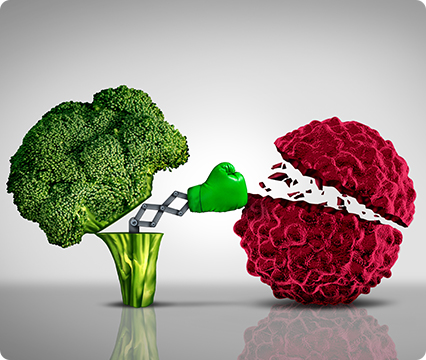Nutraceuticals in the Mediterranean Diet: Potential Avenues for Breast Cancer Treatment
The Mediterranean Diet (MD) is a term pertaining to the dietary pattern of populations residing around the Mediterranean Sea as early as the 1960s. A substantial level of publications studied the MD, and highlighted the biological enhancements that several of its components induce, in the setting of chronic diseases (neurodegenerative, cardiovascular) and cancers such as breast carcinoma. The MD is rich in retinoids, polyphenols, and polyunsaturated fatty acids (PUFAs), which were found to have anti-inflammatory, immunomodulatory, antioxidant, and antitumor characteristics. These nutrients take part in a myriad of anticancer mechanisms responsible for cell signaling and regulation of molecular events, including processes like cellular proliferation, differentiation, survival, migration, angiogenesis (synthesis of new blood vessels), cellular immune responses, and antioxidant enzymatic activity. Augimeri et al. (2021) present an outline of the anticancer properties of polyphenols (namely epigallocatechin 3-gallate and resveratrol), omega-3 PUFAs, and retinoids by discussing key elements in the pathology of cancer (arrest of cell cycles, apoptosis, inflammation, and angiogenesis). The authors comment that current in vitro and in vivo evidence substantially recommends the use of polyphenols as potential contenders for future anticancer treatment modalities in breast cancer. [NPID: Angiogenesis, apoptosis, cell cycle, epigallocatechin gallate, inflammation, mediterranean diet, nutraceuticals, omega-3, polyunsaturated fatty acids, resveratrol, retinoids]
Year: 2021

 Navigation
Navigation






